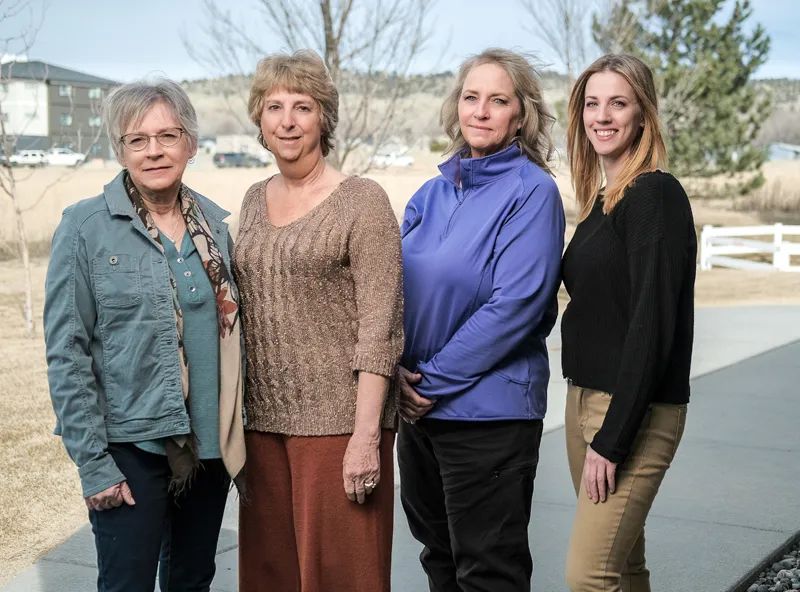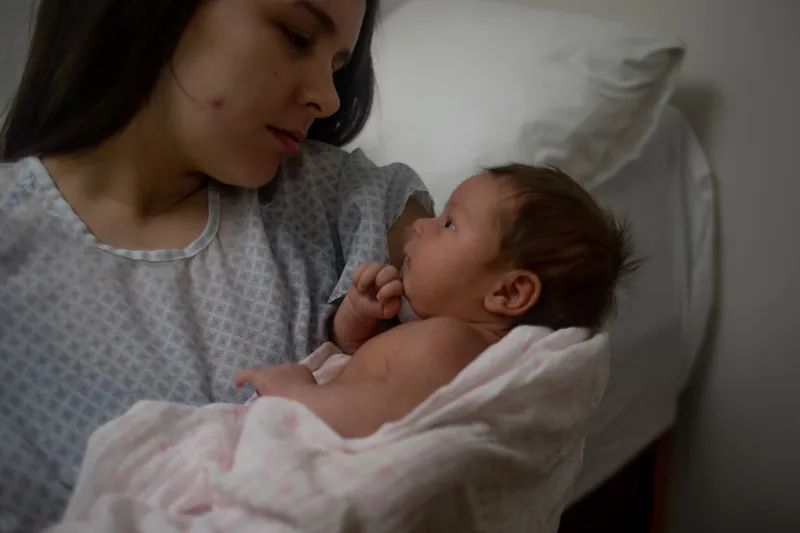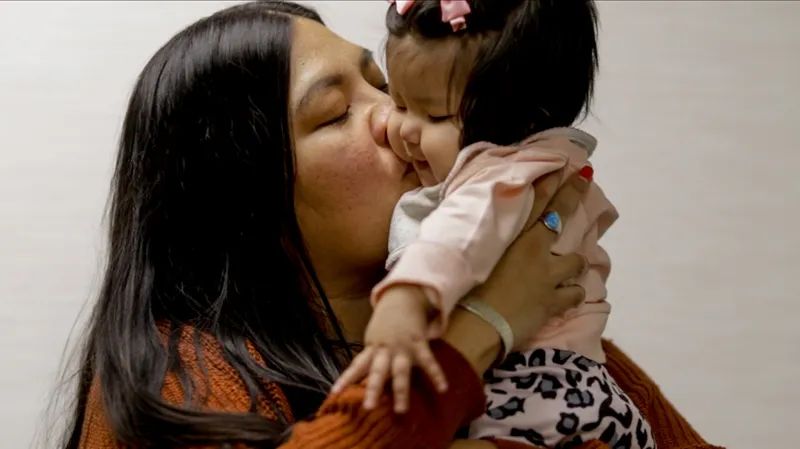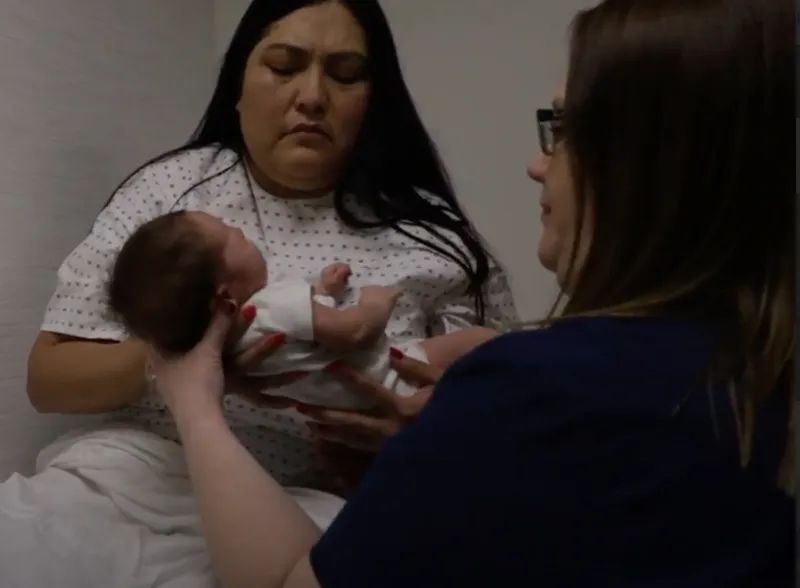
Babies Beyond Bars
The positive force of helping incarcerated moms stay connected to their infants
When a woman incarcerated in the Montana prison system gives birth, she’ll likely have only 24 hours with her baby before she’s discharged from the hospital. She’ll hand over her newborn to family or foster care.
“It’s traumatic for both mother and baby,” says Lesli Gould, founder of Babies Beyond Bars, a new nonprofit that provides breastfeeding support and education to incarcerated mothers.
Lesli is an international board-certified lactation consultant at the Children’s Clinic, and coaches breastfeeding mothers. She believes the bond between mother and child, created at birth, can be strengthened as incarcerated mothers provide breast milk to their babies.
“I just saw women who were at a real disadvantage,” Lesli says. “They’re separated from their babies.”
Experts say infants should receive only breast milk for the first six months of life, and breastfeeding is recommended up to two years. Incarcerated women have less than 24 hours to breastfeed unless they decide to pump their breast milk, which, in most correctional facilities, isn’t supported.
Lesli brought her concerns to several other women in her professional circle, and together they formed Babies Beyond Bars.

PHOTO BY Amelia DiGiano
It’s a new program, but this group of women spent a year laying the groundwork. They started last May. At the time, several women in Passages, a Montana Department of Corrections pre-release center, gave birth. One mother wanted to pump her breast milk for her baby, and although prison staff members were supportive, they realized there wasn’t a plan in place. Thankfully, the Family Tree Center, which provides parenting and pregnancy education for women in the prison system, stepped in to help with the logistics. The situation had a positive outcome, but it had many people, including Lesli, wondering if there wasn’t a need for a more formal program.
Gayle Espeseth, a recently retired dietitian who worked for Riverstone Health WIC Program, was among the “problem solvers” who came to the rescue and helped to find a breast pump for the mother at Passages. When she heard of Lesli’s idea, she jumped on board.
“She was lucky. She had great family support. She pumped until she was out of Passages, and it was a great experience for her,” Gayle says.
Babies Beyond Bars is all volunteer-led and relies on donations and small grants for program support. The nonprofit is an independent program of the Family Tree Center, which is already active in the prison system.

PHOTO BY AMELIA DIGIANO
Carol Roberts, a local Le Leche League leader, joined the team at start-up. With 40 years of experience as a lactation consultant, she’s used to supporting breastfeeding mothers and their babies.
“We work with that mother in her situation to make it work for them, and this isn’t that different. It’s working with a mother … so she can have that connection with her baby, which is important. When they are released, they can pick up where they left off.”
There are few, if any, studies on pumping breast milk in prison, but what is known through research is that strong family connections reduce the rate of recidivism. Breastfeeding – even from a distance – creates a bond.
“Pumping and giving their breast milk to their baby is something only the mother can do so it creates a sense of value. They know are valuable,” Carol says. “And she knows she’s connected to her baby through her breast milk.”
One of the barriers that Babies Beyond Bars hopes to overcome is shipping. Sometimes babies aren’t in the Billings area and frozen breast milk needs to be shipped. One shipment can cost up to $350, Lesli says. Prior to the establishment of Babies Beyond Bars, the caregiver had to pay for the shipping and/or arrange a pick-up. Lesli and her team are actively raising money to cover shipping costs.

PHOTO BY AMELIA DIGIANO
Donated funds are also used to buy breastfeeding supplies and hospital-grade breast pumps, which are made to initiate and maintain production. They are also safe to be used by multiple mothers and cost about $2,200. They’ve already secured several breast pumps through grants and donations, but more are needed. Babies Beyond Bars would also like to supply breast pumps to the Women’s Prison, Passages Pre-Release Center, and the Yellowstone County jail.
The warden at the Women’s Prison is 100 percent on-board with the project. She had allowed inmates to pump their breast milk in the past and is appreciative of an established program to provide education and support.

PHOTO BY AMELIA DIGIANO
The motivation to pump every three to four hours is difficult to maintain, especially without support. Babies Beyond Bars hopes that by providing encouragement and education, they can boost motivation and commitment.
“They have to wake up at night. They have to be motivated,” says Jamie White, a lactation consultant on the Babies Beyond Bars team.
“It’s important to have someone say it’s worth it,” Carol adds.
For now, Babies Beyond Bars is focused on providing breastfeeding support and education to incarcerated mothers but they eventually would like to establish a program that provides doula support for them as well. Doulas provide support and education to expectant mothers and work closely with them throughout pregnancy and birth.
“We want to provide a service to a community that’s lacking a voice,” Lesli says.
YOU CAN SUPPORT Babies Beyond Bars by making a donation online at babiesbeyondbars.org











